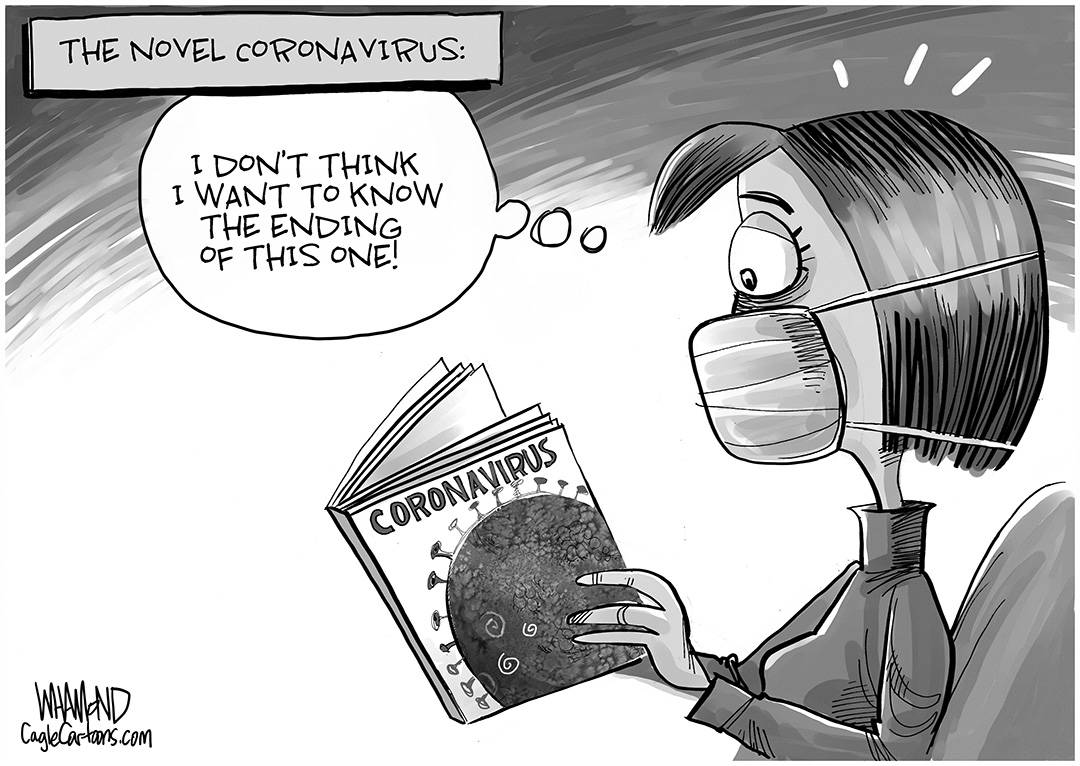By Sandra Crouse Quinn
The Baltimore Sun
We are still at the early stages of the novel coronavirus epidemic with new cases daily throughout the United States. But there are unknowns that limit what scientists, public health officials and governments confidently know about the virus —and can relay to everyday Americans.
That’s always been true early in an epidemic, from severe acute respiratory syndrome SARS, the 2009 H1N1 influenza pandemic and the Middle East respiratory syndrome outbreak several years ago.
This uncertainty limits the ability of public health and government officials to give the public what it wants most —definitive answers. How is this new virus different from the common cold or the flu? What should we do to protect ourselves? How will it affect our daily lives? Unfortunately, uncertainty is a normal part of any pandemic, and it can take weeks or longer before public health officials and scientists know enough to give full and confident answers.
Yet, we are asking much from the American public. Go about your daily lives. Wash your hands. Cough into your elbow. And increasingly, begin to prepare to stay home if needed. Finally, we ask for support as governments at every level enact new policies and restrictions.
What do the American people need to understand to take action and manage their lives during what may be an extended period of hardship? The bottom line is trust. We’ve learned from the 2001 anthrax attack, H1N1 and the 2014 Ebola outbreak, that the public is inclined to believe that uncertainty and a lack of satisfactory answers are a sign that officials are “hiding something” or incompetent. When we distrust our public officials, we may not be ready and willing to take the actions they ask of us, and the result is dangerous.
My research on the H1N1 outbreak found that preparing the public for uncertainty and changing information increased trust and belief that government officials were being open about what they did and did not know about the virus. Public health leaders have learned important lessons from past pandemics. Dr. Nancy Messonnier, director of the National Center for Immunization and Respiratory Diseases at the Centers for Disease Control said during a press conference last month on the coronavirus: “Our guidance and advice are likely to be fluid and subject to change as we learn more. We will continue to keep you updated.” This openness is vital and helps us trust her and the agency.
But trust can be easily undermined. A cardinal sin of communication in an epidemic is over-reassuring the public. The Trump administration repeatedly minimizes the coronavirus threat. The right way to communicate with the public is to help them anticipate change. On Feb. 25, Dr. Messonnier said, “…We expect we will see community spread in this country… It’s not so much a question of if this will happen anymore, but rather more a question of exactly when this will happen and how many people in this country will have severe illness … .” She was not just telling the truth, she was also helping us prepare emotionally for what is to come.
Empathy matters. Rather than offering false reassurances, it is critical for the Trump administration to acknowledge how hard and scary this may become.
So, to our elected officials: You have critical responsibilities to the country. It is essential that you trust the experts from CDC, the National Institutes of Health and local health departments. Make sure they have the funding they need to manage this crisis. Tell us the truth … this is a dangerous virus, not a hoax, and there is no magic bullet.
The vaccine process will take a year or more. Help us prepare ourselves and our families. Tell us daily what you are learning and why you are making the decisions you are. Let us know you are human too, and acknowledge our worries and fears. Let go of blaming this on partisan politics and recognize the coronavirus is our common enemy. And finally, help us rise to our best selves —prepared to manage this crisis, able to bear what is coming and willing to look out for our extended families, friends, neighbors and to those most in need. The coronavirus is a force of nature and our response to it is a reminder of our common humanity.
And to the American public … get ready for change and uncertainty. We know that as science progresses, information will change, often multiple times a day, and consequently, recommendations and policies will change.
For some time, we will experience increasing numbers of coronavirus cases and deaths. It will get worse before it gets better.
Sandra Crouse Quinn (scquinn@umd.edu) is a professor and chair of the Department of Family Science and senior associate director of the Maryland Center for Health Equity at the School of Public Health at the University of Maryland



